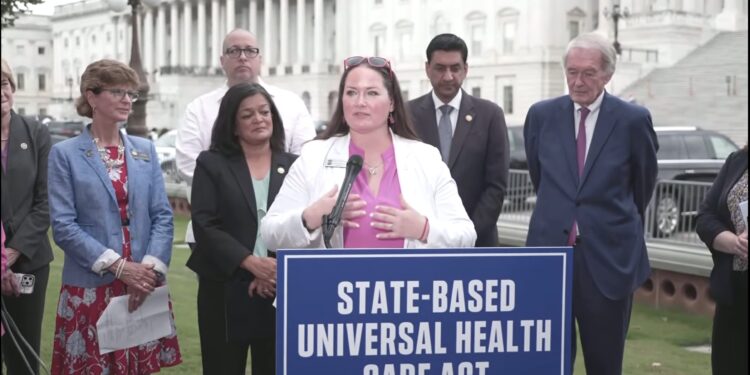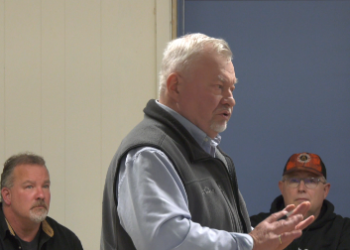WASHINGTON D.C. (WZMQ) – Michigan State Representative Carrie Rheingans traveled to Washington, D.C., this week to join lawmakers and state leaders advocating for the State-Based Universal Healthcare Act, a bill designed to give states federal funding and flexibility to create their own universal healthcare systems.
Rheingans, who introduced a state-level healthcare plan called MiCare in Michigan, told reporters that federal approval is necessary to access federal funds and implement the program statewide.
“Hospitals and nursing homes will close millions and millions of people will be losing their healthcare coverage across the country. There’s a tax on student loans, which means people won’t be choosing medical fields to go into to study, and we’ll lose healthcare providers. Even if you have coverage, you’re going to be paying more and more, and that’s going to price a lot of people and a lot of employers out of covering their employees.” Rheingans said. “Our job as leaders is to be ready with a new way forward when the healthcare system collapses, and I believe that way is through a universal healthcare system with a single public payer, be it at the state level or the federal level.”
The proposed legislation would allow states to combine federal healthcare dollars, including Medicaid and Medicare funds, and use waiver authority to design healthcare coverage that fits their residents’ needs. Supporters say the bill would enable states to innovate solutions to reduce healthcare costs and expand access.
The coalition includes prominent national figures such as U.S. Senators Ed Markey and Gustavo Rivera, as well as U.S. Representatives Ro Khanna and Pramila Jayapal. They emphasized the need to address recent federal cuts to Medicaid and Medicare that they say threaten millions of Americans’ coverage and strain healthcare providers.
“We need to treat healthcare like the public good it is,” said Senator Markey.
States including Colorado and Maine have also taken steps toward universal healthcare, with Colorado commissioning a study on a single-payer system and Maine having legislation ready to implement when federal support is secured.
Advocates warn that without change, more Americans will face a lack of coverage, medical debt, and poor health outcomes. They say state-led efforts could build momentum toward broader national healthcare reform.
The State-Based Universal Healthcare Act is currently under consideration in Congress, and supporters say they will continue pushing for its passage.

















